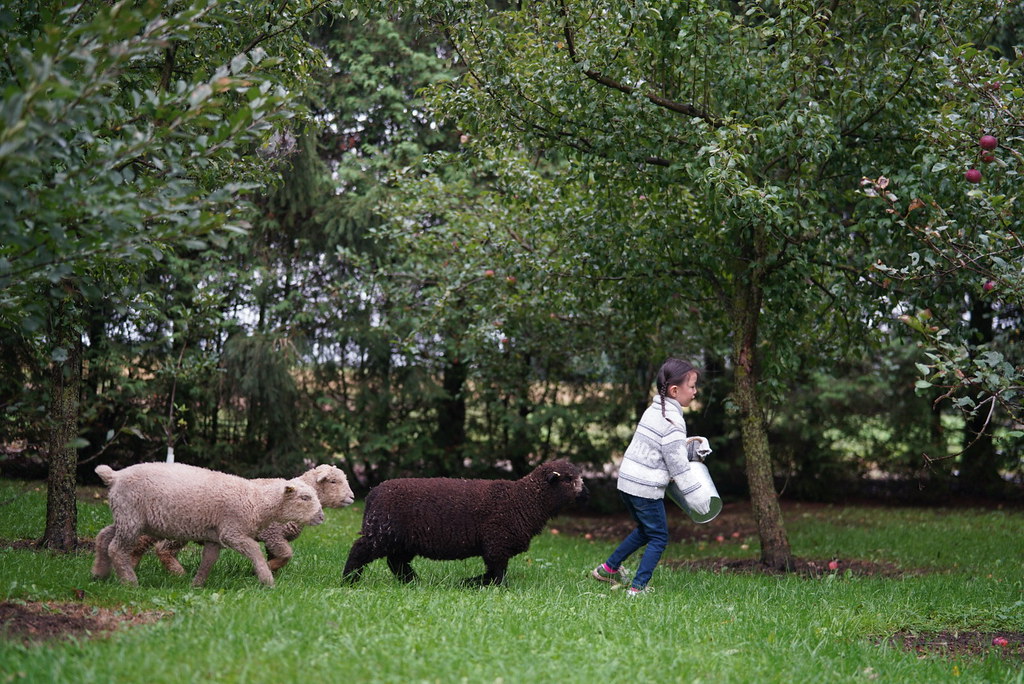There are valleys in a life that you don’t know the way through, but a sage crosses your path and points to deep Truth of the Word that changes your map, your landscape, your direction. Scot McKnight has been one of those deeply wise voices for me, a highly respected theologian, writer and thinker, whose work has been profoundly spiritually formative in my own journey. What Scot writes, I read, I consider, I pray, I’m convicted, I repent and I’m refined and sanctified and more deeply committed to the ways of our Triune God. His latest book, A Church Called Tov, is a map for anyone who cares about how the church can reflect the goodness and heart of God. It’s a humble honor to sit with the wisdom of Scot McKnight, a servant of Christ, on our front porch today:
A seminary class discussion spun us into dizziness as we sought to know the mind of God as we talked about two megachurches whose pastors had moral collapses.
That evening a student emailed to ask if we could talk privately and soon. I stood in my driveway in the hot sun the next afternoon when he came forth with his question: “What can I do now that I don’t become like them later?”
What I wanted my student to hear from me in that moment was that character determines behaviors.
That behaviors are only manifestations of character.
That what matters most is character.
Jesus often offered verbal images to His closest followers. He taught like this so their imaginations would be stimulated.
One of His word pictures can be found in these words: “Likewise, every good tree bears good fruit, but a bad tree bears bad fruit. A good tree cannot bear bad fruit, and a bad tree cannot bear good fruit” (Matthew 7:17-18, NIV).
Jesus said it best: if you (a fruit tree) are transformed by God’s grace to become like Jesus, your actions (your fruit) will be “good.” Good, healthy, flourishing fruit trees produce good, nutrient-giving fruits that bud and bloom and fill up its skin. (As well, bad trees produce rotten fruit, and rotten fruit sickens us.)
What I wanted my student to know was that his attention should be focused on being formed into having a faithful, Jesus-loving and Christ-like character.
His preaching and leadership gifts needed to be improved, but they would only be as effective as his character allowed. Character eats gifts before breakfast.










That word “good” has a history for Jesus because it blossomed in so many stories in the Bible, our Old Testament.
The Hebrew word Jesus had learned from His father and mother as a child, tōv, was one of the Bible’s greatest moral terms.
When I first spoke about tōv in a classroom the students all started using it – for what they ate for lunch, for a question a student asked, and for a response to a question that another student gave.
Tōv sometimes means beautiful – it’s used many times in the first chapter of Genesis for what God thought of His creation. Tōv means excellent and sometimes means God’s tōv design. When it summarizes a person’s life, tōv means a flourishing, faithful moral character. God is tōv, God’s design is always tōv, God’s redeemed people are to do tōv.
One of my favorite uses of this term is that it points out God’s ultimate evaluation of us. One of my friends said her older daughter pronounces at times to her younger sister “Well done!” My friend said, “That’s tōv! Is that what it means?”
Yes, and “That’s tov!” is what God says to us because of Christ’s work in us.
But tōv fruit grows on a tōv tree. Tōv fruit doesn’t drop into our hands from a bad tree. Nor do we (as trees) produce tōv fruit because we get up some morning, peer through the field and tell some tree, “Give us something tōv today!” Nor do they produce tōv fruit because we want them to. Fruit trees are planted where the sun can shine, where the rains can fall on them, and where the farmers can pick them.
This is what Jesus wanted His disciples to see and what I wanted my student to perceive: we are trees and we can produce fruit (a life that is tōv) by opening ourselves to the Spirit of God’s grace. “How do we do this?,” my student asked.
“Talk to God. Talk with God. Listen to God.” If God alone is tōv, we won’t produce tōv fruit by trying harder or making faux fruit in our woodshed. God alone is tōv, and God alone produces tōv in and through us.
You might wonder why I didn’t first say “Read your Bible.” Pastors have a bad habit of reading the Bible too often for sermons and not often enough to hear from God personally. So, I start with talking with God.
Transformation happens by proximity. I’m sure I didn’t use that term “proximity” then but it’s a good term. The more time we spend with someone the more we become like them.
The more time we spend opened to our tōv God, the more tōv we can become. God nurtures us into a tōv tree that produces tōv fruit.
The closer we are to the dazzling tōv of God, the more we become tōv.
Time in God’s presence, reading and relishing His Word, talking with God and learning to hear God’s utterly tōv voice, and spending time with those who know our tōv God is also how we, the trees, can become tōv trees and produce tōv fruit.
A year later I saw my student on campus sitting at a table reading his Bible, and I asked how he was doing. He said “Good.”
I smiled and as I walked away I thanked God that I got to stand in the sun for that conversation.
Scot McKnight, along with his daughter, Laura Barringer, are the authors of A Church called Tov. Scot is a professor of New Testament at Northern Seminary outside Chicago, a husband to Kris (for over 47 years!), and the father of two children (Laura and Lukas). Their book is shaped for lay person and leaders alike and pray it can help churches form cultures of goodness.
Tragically, in recent years, Christians have gotten used to revelations of abuses of many churches. Respected author and theologian Scot McKnight and former Willow Creek member Laura Barringer wrote this book to paint a pathway forward for the church.
We need a better way. The sad truth is that churches of all shapes and sizes are susceptible to abuses of power, sexual abuse, and spiritual abuse. Abuses occur most frequently when Christians neglect to create a culture that resists abuse and promotes healing, safety, and spiritual growth.
How do we keep these devastating events from repeating themselves? We need a map to get us from where we are today to where we ought to be as the body of Christ. That map is in a mysterious and beautiful little Hebrew word in Scripture that we translate “good,” the word tov.








